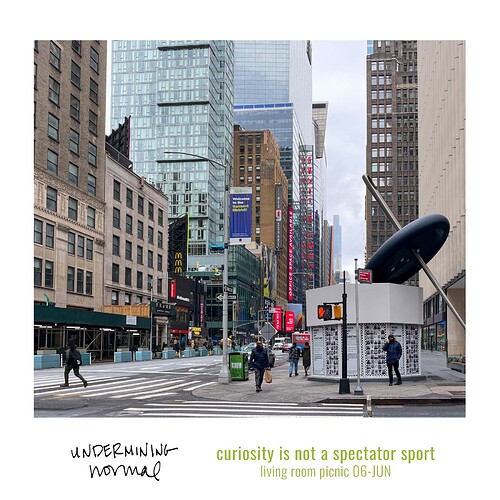curiosity is not a spectator sport (a living room picnic)
on Monday, 06-Jun from 7:30-8:30pm EDT
Every day is kind of an experiment. Every moment really. A series of them — ooh too linear! even movies aren’t that linear in flow —a web, a mesh, fluid and state-changing, a mixing of experiments from every direction conceivable and beyond.
There is ALWAYS more beyond us, that we don’t know.
[sigh]
I don’t mean to be overwhelming, but it is beyond any kind of containment. It is AMAZING. Being. Being human in the world.
It takes effort. Attention. Participation. Effort to make sense of it all.
And then it shifts. It always shifts. That’s life.
That’s living.
Experimenting isn’t just for scientists and researchers.
I like the way author Zora Neale Hurston puts it:
Research is formalized curiosity. It is poking and prying with a purpose.
Experimenting is what everyone does, with varying degrees, and kinds, of formality. And curiosity is a core component. It’s a state of being that you can embody —however you choose to. You do have to choose though. What difference does it make to be curious?
At our next living room picnic, I’d like to consider the role curiosity can play in the quality of our lives.
Let’s talk… ![]()
![]()
As always, there’s nothing to prepare, nothing you need to know to participate.
when: Mon 30-May from 7:30-8:30pm EST
to attend:
If you’ve never attended a living room picnic and feel like more of an introduction to UNDERMININGnormal and what picnics are like, you can stop by the courtyard; I wrote this for you.
with much care and interest,
—Alex
